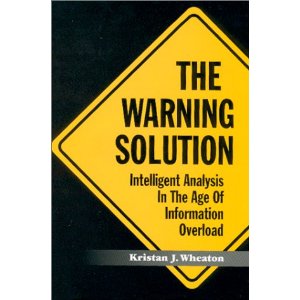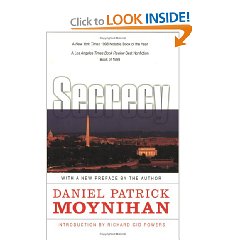As a former clandestine case officer, leaving the Agency in 1988 after unsuccessfully chasing terrorists for a few years, I knew we were in bad shape but I did not realize just how bad until I read this book. The author, working mostly in the Near East (NE) Division of the Directorate of Operations, and then in the Counter-Terrorism Center when it was just starting out, has an extremely important story to tell and every American needs to pay attention. Why? Because his account of how we have no assets useful against terrorism is in contradiction to what the Director of Central Intelligence (DCI) told the President and his top advisors at Camp David on Saturday 15 September. According to the Washington Post of 31 January 2002, page A13, on the 15th the DCI laid out an ambitious “Worldwide Attack Matrix” and told the President that the United States had a “large asset base” from its years of working the terrorism target. One of these two men one is closer to the truth than the other. In my judgement, I believe Baer has three-quarters of the weight on his side. This discrepancy warrants investigation, for no President can be successful if he does not have accurate information about our actual capabilities.There are four other stories within this excellent book, all dealing with infirm bureaucracies. At one level, the author's accounting of how the Directorate of Operations has declined under the last three leaders (as the author describes them: a recalled retiree, an analyst, and a “political” (pal)) is both clearly based on ground truth, and extremely troubling. The extraordinary detail on the decline and fall of the clandestine service is one that every voter should be thinking about, because it was the failure of the clandestine service, as well as the counterintelligence service (the Federal Bureau of Investigation) that allowed 9-11 to happen…at the same time, we must note that it was a policy failure to not have investigated similar incompetencies when a military barracks in Saudi Arabia, two Embassies, and a naval destroyer were attacked, and it was clearly known in open sources that bin Laden had declared war on America and had within America numerous Islamic clerics calling for the murder of Americans–all as documented in an excellent Public Broadcast Service documentary.
At a technical level, the author provides some really excellent real-world, real-war annecdotes about situations where clandestine reporting from trusted operations officers has not been accepted by their own superiors in the absence of technical confirmation (imagery or signals). As he says, in the middle of a major artillery battle and break-out of insurgent elements, screaming over the secure phone, “its the middle of night here”. We've all known since at least the 1970's that the technical intelligence side of things has been crushing human sensibility, both operational and analytical, but this book really brings the problems into the public eye in a compelling and useful manner.
At another level, the author uses his own investigation for murder (he was completely cleared, it was a set-up) by the Federal Bureau of Investigation, and at one point by the Secret Service, to shed new light on the complete break-down of internal security processes within the CIA. At its lowest point, he is pressured by DO management with a psychological evaluation to determine his fitness for duty–shades of Stalinism! I know this technique, of declaring officers unfit for duty based on psychological hatchet jobs, to be a common practice over the past two decades, and when Britt Snider was appointed Inspector General at CIA, I told him this was a “smoking gun” in the 7th floor closet. That it remains a practice today is grounds for evaluating the entire management culture at CIA.
There is a fourth story in the book, a truly interesting account of how big energy companies, their “ambassadors” serving as Presidential appointees within the National Security Council, and corrupt foreign elements, all come together. In this the spies are not central, so I leave it as a sidenote.
In my capacity as a reviewer of most intelligence-related books within these offerings, I want to make it clear to potential buyers of this book that the author is not alone. His is the best, most detailed, and most current accounting of the decrepit dysfunctionality of the clandestine service (as I put it in my own book's second edition), but I would refer the reader to two other books in particular: David Corn's “Blond Ghost: Ted Shackley and the CIA's Crusades”–its most memorable quote, on covert action in Laos, being “We spent a lot of money and got a lot of people killed, and we didn't get much for it.”–and Evan Thomas' “The Very Best Men–Four Who Dared: The Early Years of the CIA”–its best quote: “Patriotic, decent, well-meaning, they were also uniquely unsuited to the grubby, necessarily devious world of intelligence.” There are many other books, including twelve (12!) focused on reform and recommended by the Council on Intelligence.
The author is a brave man–he was brave on the fields of war and clandestinity, and he is braver still for having brought this story to the public. We owe him a hearing.









